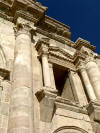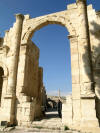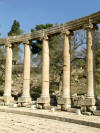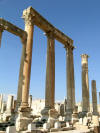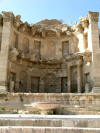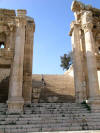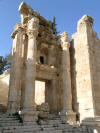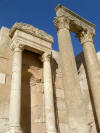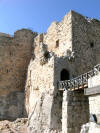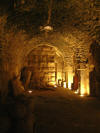Round The World and other travels
A frequent flyer's collection of trip diaries
November 2011: Amman
The rapidly growing city of Amman, capital of Jordan, is one of the oldest continuously inhabited settlements in the world and can be traced back to 7000BC. In Roman times it was called Philadelphia. Its inland location and elevation mean that the city has one of the coolest climates in the region. Amman turned out to be a little more chaotic than I had expected. It is not very pedestrian-friendly, largely due to its San Francisco-style topography and dense traffic, which causes a build-up of nasty fumes throughout much of the day.
City Tour
With the help of the hotel concierge, we arranged a taxi to take us on a half-day city tour taking in the Citadel, Roman amphitheatre (amazingly still in use!) and the striking black-and-white Abu Darwish mosque, while leaving plenty of time for some hotel-based 'chill time' in the afternoon. (As we had no luggage at this point and with the weather breaking during our visit to the amphitheatre, it turned out to be an inspired piece of planning!)
The Citadel is an extensive site on top of Jabal al-Qal'a hill, containing the remains of al-Qasr / Umayyad Palace, the Medina, a small Byzantine basilica, the Jordan Archaeological Museum and the Great Temple of Amman, also known as the Temple of Hercules.
| RIGHT
and ROW BELOW: Amman Citadel |
 |
 |
 |
 |
 |
 |
 |
 |
 |
 |
 |
 |
 |
 |
 |
 |
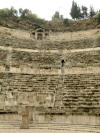 |
 |
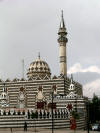 |
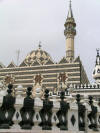 |
ROW ABOVE: The Roman amphitheatre LEFT: Abu Darwish mosque |
||
Jerash
The following day, we used the same driver to visit the Roman ruins at Jerash, some 30 miles north of Amman and one of the best-preserved Roman sites in the world. The Greco-Roman city here was called Gerasa and its remains are all the more amazing because they stand directly adjacent to the (rather unattractive) modern city. Note the difference in weather from the previous day!
Ajlun Castle
On the way to Jerash, we made a stop to visit Ajlun Castle, a rare example of a preserved Arab castle from Crusader times. It offers fine views to the west and on a clear day it is possible to see Jerusalem.
Base: Le Méridien
Linked reports from same trip:


